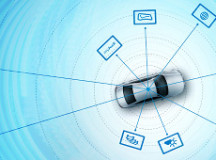Connected cars may be the most advanced technological breakthrough in the history of the car market but their rollout is faced by a lot of road blocks that may dampen this otherwise great innovation. Some of the hurdles include industry standardization, data management, legal regulations and acceptance by the consumer market. Currently in the United States, a class action lawsuit against the manufacturers of connected cars is in the offing with the main accusation being that they are knowingly selling cars that possess the risk of being hacked thus are potentially unsafe for the consumer market.
The legal hurdles facing everybody from automakers to technology providers and governments is how to effectively satisfy legal product requirements and finally achieve the benefits associated with connected car assessment. These benefits include reduction of car accidents, road infrastructure management, traffic management, roadside assistance and fuel consumption among others. It is feared that a class action lawsuit will delay and deny the benefits of advancing car technology and effectively reaping the benefits of connected cars.
The lawsuit in the United States filed in California by The Stanley Law Group of Dallas, Texas against Toyota, Ford and GM indicates that the companies “deliberately hidden the dangers associated with car computer systems, misleading consumers”. The lawyers’ contention is that the cars are susceptible to hacking and thus should not be sold unless a security solution is found by stakeholders. They hold that these cars are not secure and therefore not safe for use by consumers.
The results of this lawsuit will be a trendsetter in the car industry and a clear indicator of how fast the connected cars can be rolled out in the market. It is important to remember that smart technology cannot be said to be a 100% hack free and thus more research is needed to give a satisfactory percentage in this case.



